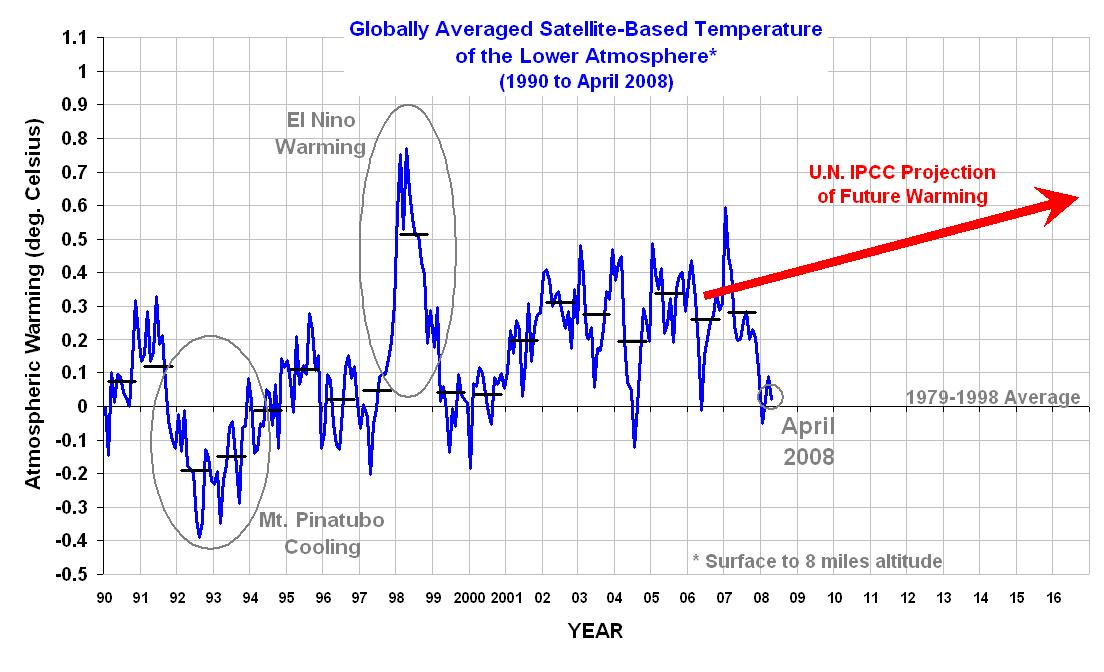Sulphates, largely produced from coal-burning power plants, are known to reflect sunlight back into space, cooling the land and ocean below, and counteracting some of heating from greenhouse gases such as carbon dioxide.
Levels of sulphates over North America rose until the 1970s, and then fell as increases in respiratory disease and acid rain led to tougher pollution controls.
This author still is a carbon-phobe, but once that gets scrubbed out, you have my theory.
I also had my theory critiqued by a friend today and have some clarifications.
His question:
If I'm reading you correctly, your point is that sulfur emissions cause cooling, and lack of/reduced sulfur emissions result in warming (or at least no mo' cooling). Okay so far?
If so, the period of nasty smelly oh-so-acidic sulfuriferous emissions between 1900 and 1960 (say) should have caused a net temp decrease. Then the environmental legislation of the 60s and 70s and resultant reduction in stinky smelly sulfur should have led to increased temps during and following those halcyon years. Now that China and India are back to crapping up the skies, we should be in another cooling cycle.
Isn't your curve showing the mirror-image of these effects?
My response:
No. My theory is exactly depicted by the actual data.
Anyway, it makes as much sense as "carbon." Why was warming not noticed prior to 1980? Something had to change around that time - was it more CO2 or less S? If more CO2, where did it suddenly come from? Anyway, I'll show in a later blog that CO2 does not matter - the earth naturally compensates for it.
Getting back to the graph, first you need to paint this picture on the canvas of global temperatures rising as we emerge from the Little Ice Age. Because of that, and our poor job of polluting in the early 20th century (smaller populations, The Great Depression, and less efficient polluting technologies), the earth's temperature rose until WWII.
With the post-war industrial boom, temps drop slightly. Once we clean the sulfur, temps take off again, notice the post-70's slope is the same as the pre-WWII temperature rise.
I goofed on the emerging economy effect. That is shown on the following graph at Dr. Spencer's website. It shows the cooling trend since 1998.





2 comments:
Thanks for the comment at Power and Control.
Although my politics have changed Roland was always one of my favorite songs.
In fact the whole Warren Zevon catalog.
John Gibson is a huge fan of Warren Zevon. He interviewed his widow last year, I learned a lot listening.
Post a Comment